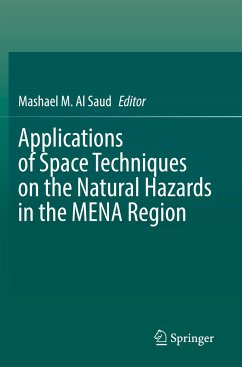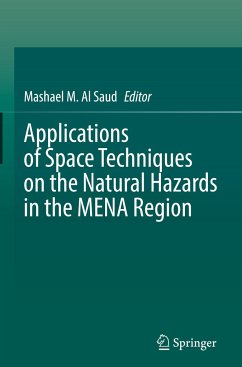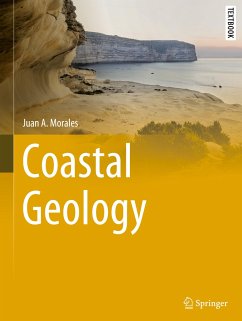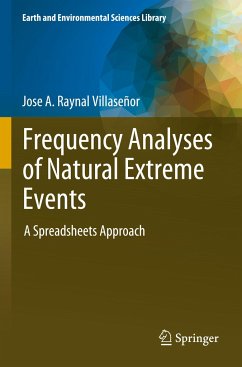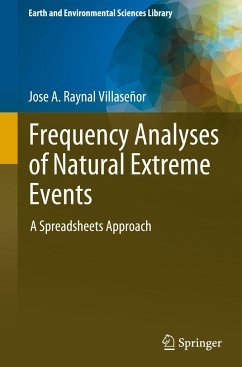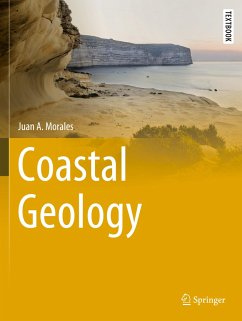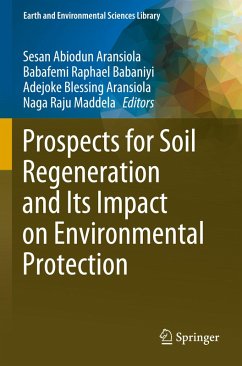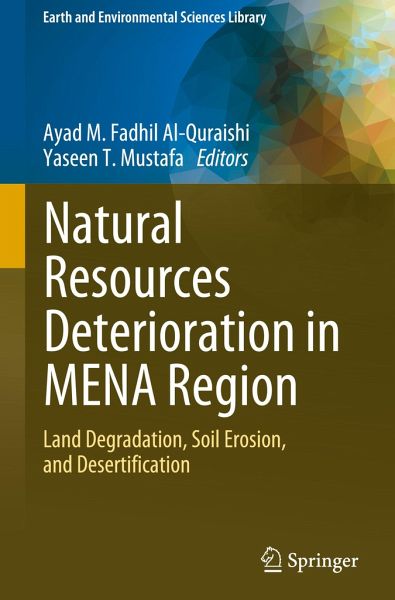
Natural Resources Deterioration in MENA Region
Land Degradation, Soil Erosion, and Desertification
Herausgegeben: Al-Quraishi, Ayad M. Fadhil; Mustafa, Yaseen T.

PAYBACK Punkte
61 °P sammeln!
Land deterioration, drought, desertification, and water resources shrinkage threaten natural resources, negatively impacting environmental, economic, and political stability. The increasing occurrence of climate change (extremes) impacts land degradation processes, soil erosion by water and wind, and salinization. The researchers have invested several years of scientific research in natural resources deterioration, including soil degradation and erosion, land degradation, desertification, and climate changes, which are interesting enough. However, the link between science and policymaking appe...
Land deterioration, drought, desertification, and water resources shrinkage threaten natural resources, negatively impacting environmental, economic, and political stability. The increasing occurrence of climate change (extremes) impacts land degradation processes, soil erosion by water and wind, and salinization. The researchers have invested several years of scientific research in natural resources deterioration, including soil degradation and erosion, land degradation, desertification, and climate changes, which are interesting enough. However, the link between science and policymaking appears to be less active as serious actions do not take fast. The eighteen chapters of this book focus more on topics related to natural resources deterioration, such as land degradation, desertification, drought, climate change, and analysis of numerous case studies.
This book presents experts' overviews, study results, experiences, and knowledge of natural resources deterioration in MENA countries. It attracts researchers, experts, scholars, scientists, academics, students, practitioners, graduates, or anybody interested in land degradation, desertification, climate change, and natural hazards that fall within natural resources deterioration. Therefore, researchers keep continuing to do their investigations and produce results that convince stakeholders and policymaking to act immediately towards protecting natural resources and their sustainability.
This book presents experts' overviews, study results, experiences, and knowledge of natural resources deterioration in MENA countries. It attracts researchers, experts, scholars, scientists, academics, students, practitioners, graduates, or anybody interested in land degradation, desertification, climate change, and natural hazards that fall within natural resources deterioration. Therefore, researchers keep continuing to do their investigations and produce results that convince stakeholders and policymaking to act immediately towards protecting natural resources and their sustainability.




